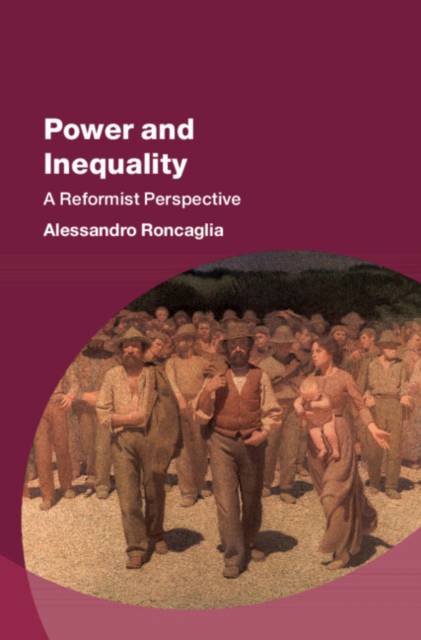
- Afhalen na 1 uur in een winkel met voorraad
- Gratis thuislevering in België vanaf € 30
- Ruim aanbod met 7 miljoen producten
- Afhalen na 1 uur in een winkel met voorraad
- Gratis thuislevering in België vanaf € 30
- Ruim aanbod met 7 miljoen producten
Zoeken
Omschrijving
Power is a broad and complex concept that cuts across all fields in humanities and social sciences. Written by a leading historian of economic thought, Power and Inequality presents a wide-ranging and multi-disciplinary analysis of power as an economic and social issue. Its aim is not to formulate a new abstract theory of power but rather to illustrate the different ways in which power is used to exacerbate social and economic inequality. Issues such as division of labour and its evolution, different forms of capitalism up to the money-manager economy, the role of networks (from the family to mason lodges and the mafia), the state and the international arena, culture and the role of the masses are considered. The analysis of these elements, causing inequalities of various kinds, is a prerequisite for devising progressive policy strategies aiming at a reduction of inequalities through a strategy of reforms.
Specificaties
Betrokkenen
- Auteur(s):
- Uitgeverij:
Inhoud
- Aantal bladzijden:
- 318
- Taal:
- Engels
- Reeks:
Eigenschappen
- Productcode (EAN):
- 9781009370523
- Verschijningsdatum:
- 18/01/2024
- Uitvoering:
- Hardcover
- Formaat:
- Genaaid
- Afmetingen:
- 152 mm x 229 mm
- Gewicht:
- 594 g

Alleen bij Standaard Boekhandel
+ 302 punten op je klantenkaart van Standaard Boekhandel
Beoordelingen
We publiceren alleen reviews die voldoen aan de voorwaarden voor reviews. Bekijk onze voorwaarden voor reviews.











